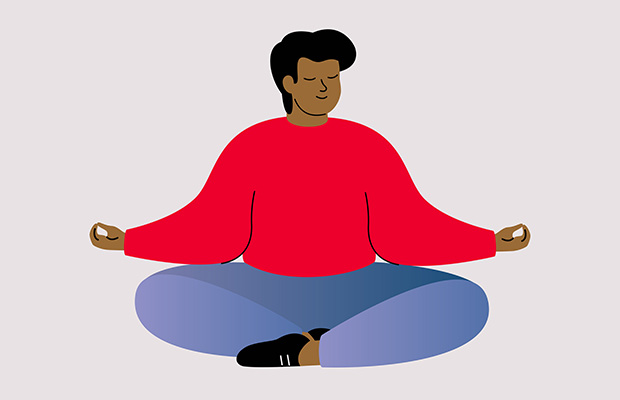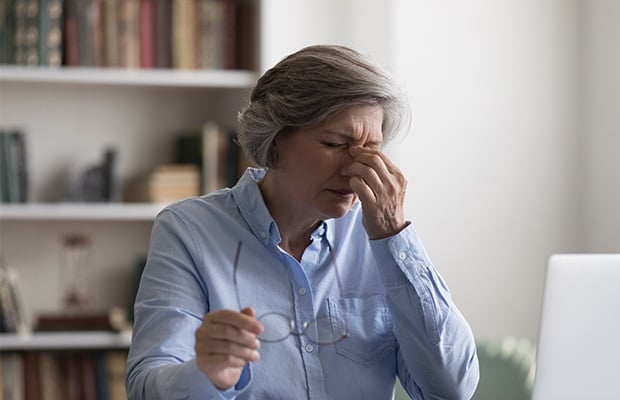If you have a heart or circulatory condition, or you care for someone with one, it’s important to look after your own needs.
“Self-care is about looking after your physical and mental health to achieve and maintain a good quality of life,” explains Mina Arvanitopoulou, Lead Clinical Psychologist in Cardiology at Guy’s and St Thomas’ NHS Foundation Trust in London.
But some of us neglect our own needs, Mina adds, saying this is often because we prioritise other people’s needs over our own, especially when when we care for someone else.
Or we do not have the time for self-care, or we feel too guilty or tired to take care of our own needs.
“Many of us think it’s selfish to devote time to our own needs, and feel guilty if we do." says Mina.
“But if we do not take time to exercise,
sleep and eat well, and enjoy
ourselves, we can slip into unhealthy
patterns of behaviour, such as
comfort-eating, smoking and relying
on alcohol to unwind.”
These unhealthy behaviours can
not only take a toll on your physical
health but, because the body and
mind go hand in hand, on your
mental health too, adds Mina.
“Looking after yourself is not
a selfish thing to do,” she says.
“Self-care promotes mental and
physical health so, in reality, we
are in a much better position to
look after others when we look after
ourselves first.”
The benefits of self-care
“A regular self-care routine will lower stress, anxiety and depression, and improve your mood, energy, sleep and productivity.
"It’s also easier to cope with life’s problems and challenges when you have some meaningful activities and tools in place to help you recover physically and mentally,” Mina explains.
Self-care can be anything from taking a short time out from your responsibilities for a daily walk, to taking a year out to travel the world.
It all depends on your role, phase in life, interests and values.
“Ideally we need to practise self-care daily, and this can take any shape or form as long as it promotes your physical and mental wellbeing,” says Mina.
Get support with your health and wellbeing
Sign up to our fortnightly Heart Matters newsletter to receive tips on coping with difficult emotions, looking after your health and living well. Joining is free and takes 2 minutes.
I’d like to sign-up
7 ways to build self-care into your routine
1. Stay active
Keep active within your own limits. This could be swimming or going to the gym, exercising at home, walking, running or trying a new sport.
Walking in nature, in a park or green space, can be especially therapeutic. Your local park or a community group may offer organised walks that combine being active with a chance to socialise.
2. Improve your sleep routine
If you’re not sleeping well, you may benefit from making lifestyle changes.
Eating your last meal of the day earlier and avoiding caffeine and screens in the evenings may help.
A regular, calming bedtime routine, listening to relaxing music, reading, or breathing exercises can help you wind down.
3. Practise mindfulness
Learn to take some pauses in your daily life. This is when you stop ‘doing’ and practise ‘being’.
You can try mindfulness meditation that involves noticing what you’re sensing and feeling in the moment without any judgement, slowing down your thoughts, and letting go of tension.

4. Do something creative
The pressure of everyday responsibilities can make it easy to overlook creative interests and skills. Think about reconnecting with something you loved when you were younger or had more time for it.
Drawing, painting, music, dancing or singing in a choir can all be relaxing and energising.
And if done as a group activity, they can offer the chance to make new friends and gain a feeling of belonging.
5. Make time for friends and family
Set aside time to see friends and family, share experiences and have fun.
If you’re usually the host, or feel responsible for providing food and drink, you may think about meeting somewhere other than your home. You can then fully relax and enjoy the experience.
6. Take regular breaks
Try to avoid taking too much on. Have an early night when you feel tired.
Instead of scrolling on your phone you could try relaxing activities, such as a long bath or listening to your favourite music.
If you work, rethink the belief that you always have to ‘push through’. Take regular annual leave and sick leave if needed.
If you have caring responsibilities, arrange respite care and learn to ask others for help.
7. Try talking therapy
You can see therapy as a lasting investment in yourself.
Among other benefits, a therapist can help you learn how to be kind and compassionate to yourself, and can help you understand what your self-care needs are and how to meet them.
Speak to your GP about finding a local therapy service, or refer yourself on the NHS website if you live in England.
Meet the expert
Mina Arvanitopoulou is an accredited chartered clinical psychologist with more than 17 years of experience working in the NHS and privately. She is currently Lead Clinical Psychologist in Cardiology at Guy’s and St Thomas’ NHS Foundation Trust.
What to read next...










